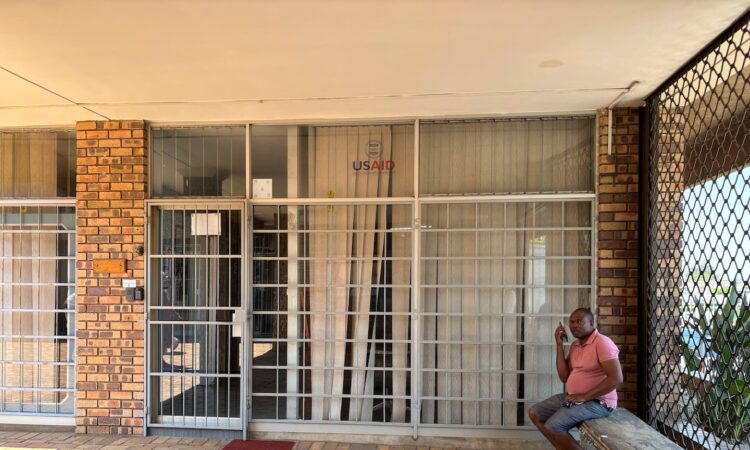
Elon Musk, who was born in South Africa and is one of Trump’s most prominent allies, has also repeatedly accused South Africa’s government of anti-white racism, touching on themes popular with far-right groups in the United States.
“Why do you have openly racist ownership laws?” Musk wrote on X on Monday, in response to a post by South African President Cyril Ramaphosa explaining the expropriation law and denying that land had been confiscated.
South Africa’s government has framed land reform as a “moral, social, and economic imperative,” because of the systemic dispossession of Black South Africans under apartheid. The country’s first comprehensive land audit in 2017 found that the minority white population owned 72 percent of individually owned farms and agricultural holdings. Mixed race citizens, referred to officially as Coloured, owned a further 15 percent, Indians owned 5 percent, and Africans owned 4 percent.
Since 1994, the government has sought to redistribute land based on a voluntary “willing-seller, willing-buyer” system and by paying compensation. So far those policies, combined with private sales of land, government land acquisition, and other programs has moved 25 percent of all farmland previously owned by white landowners to Black South African ownership or state ownership, according to research by Stellenbosch University in South Africa.
Ramaphosa, in his lengthy post on X on Monday, said the expropriation law is not a confiscation instrument, but a constitutionally mandated legal process that ensures public access to land in an equitable and just manner as guided by the constitution.
“South Africa, like the United States of America and other countries, has always had expropriation laws that balance the need for public usage of land and the protection of rights of property owners,” he added.
“We look forward to engaging with the Trump administration over our land reform policy and issues of bilateral interest,” he wrote.
It was not immediately clear what assistance Trump wanted to suspend; in 2023, the United States obligated nearly $440 million in assistance to South Africa, the most recent year that full data is available. The lion’s share went to health programs, especially HIV/AIDS treatment and prevention.
Ramaphosa, in his post on X, said aid from PEPFAR, a US-funded AIDS prevention program, made up 17 percent of South Africa’s HIV/AIDS program, but apart from that, the South African government received no direct aid from the United States.
Trump could also suspend South Africa’s participation in the US African Growth and Opportunity Act, which provides eligible sub-Saharan African countries with duty-free access to the US market. The act, due for renewal this year, requires privileged trading partners to have market-based economies, the rule of law, political pluralism, and the right to due process, among other conditions.
Gwede Mantashe, South Africa’s mineral and petroleum resources minister, told a mining conference in Cape Town on Monday that the country should withhold minerals from the United States if Trump follows through on funding cuts. “If they don’t give us money, let us not give them minerals,” Mantashe said. “We are not just beggars,” he added, urging other African nations to use their mineral wealth as leverage.
South Africa exports gold, platinum, diamonds, manganese, chromite, and iron ore to the United States, which are valued for their catalytic properties in items like car exhaust systems, chemical processes, and fuel cells.
A South African suspension from AGOA proposal was floated under the Biden administration in 2023 after South Africa hosted a Russian warship that year flying the letter “Z” — a rallying cry for the war in Ukraine — and participated in a joint naval exercise with Russia and China on the anniversary of the Ukrainian invasion. There was no suspension, but the incident underscored US uneasiness with South Africa’s close ties to Russia that date back decades to when Russia supported and trained those fighting the apartheid government, which was supported by several US administrations.
The war in Gaza has also chilled relations between Pretoria and Washington. At the end of 2023, South African lawyers filed a genocide case against Israel in the International Criminal Court, alleging that Israel’s conduct against Palestinians mirrored some of the actions of South Africa’s own previous apartheid government. Washington, a staunch supporter of Israel during the war, has repeatedly denied any suggestion that Israel’s war against Hamas in Gaza amounts to genocide.
Ernst van Zyl, head of public relations at AfriForum, a South African group that often takes legal cases on behalf of white South African farmers, said it would write to Washington and request that US sanctions target members of the ruling African National Congress party in place of punitive measures against South African residents. AfriForum said it would also table an amendment to the Expropriation Act to protect property rights.
Wandile Sihlobo, a senior fellow at the Department of Agricultural Economics at Stellenbosch University, said the South African expropriation law merely updated legislation from 1975 and that both the law and constitution required compensation for land to be “just and equitable.”
“There is no land grab,” he told The Washington Post, calling Trump’s comments “misinformed.”
“The land reform process is still continuing on the open market,” he said. “The South African government has now purchased in the open market about 2.5 million hectares of land which will be … transferred to Black South Africans with title deeds.”
South Africa’s agricultural sector has more than doubled in value and volume since the end of apartheid in 1994, exporting now half of what it produces, he said – not the case in neighboring Zimbabwe, where large-scale land seizures devastated the economy, causing the migration of millions of citizens.
That’s one reason there is not widespread political support for such seizures in South Africa, as fear of a Zimbabwean-style collapse often looms in conversation with South Africans of all races.
